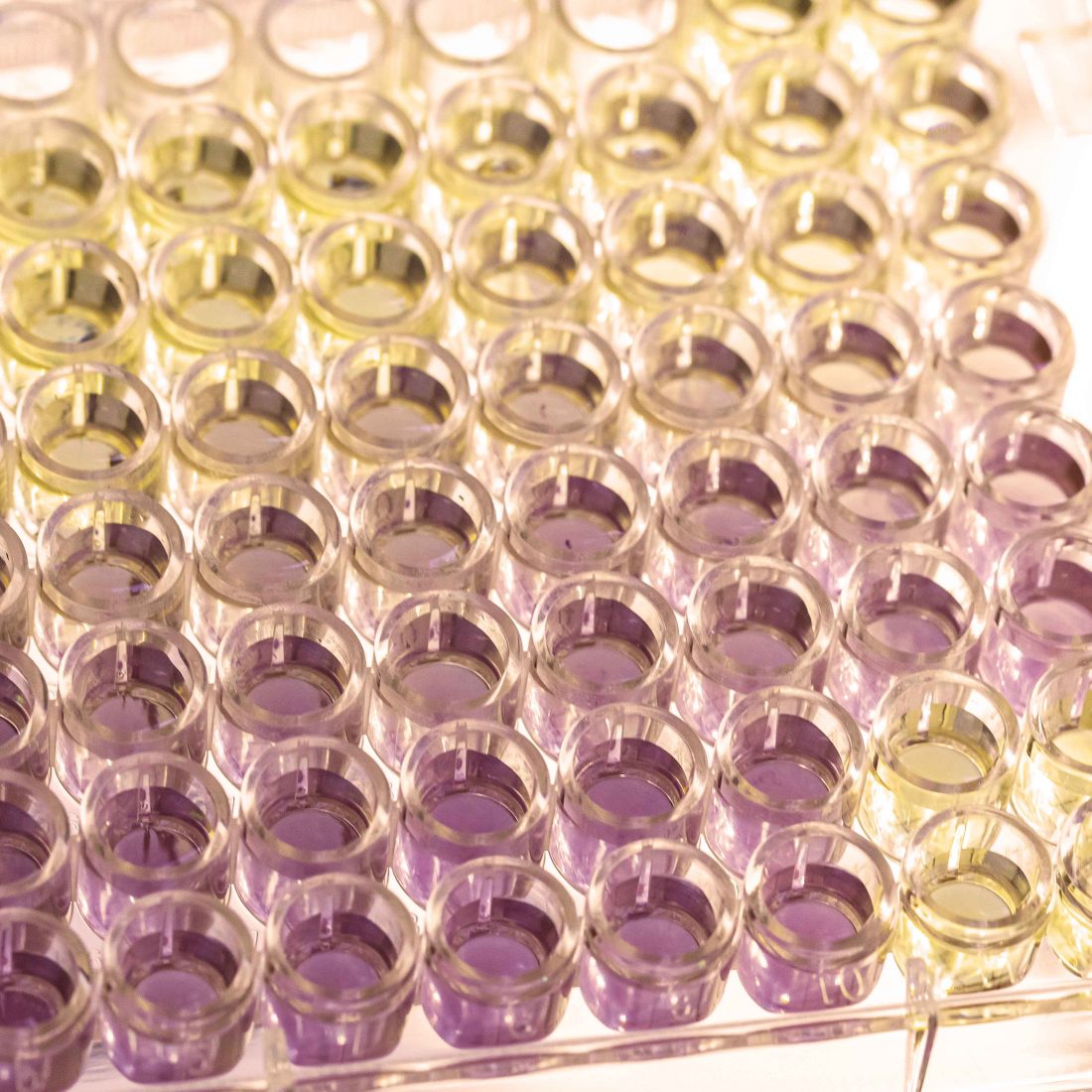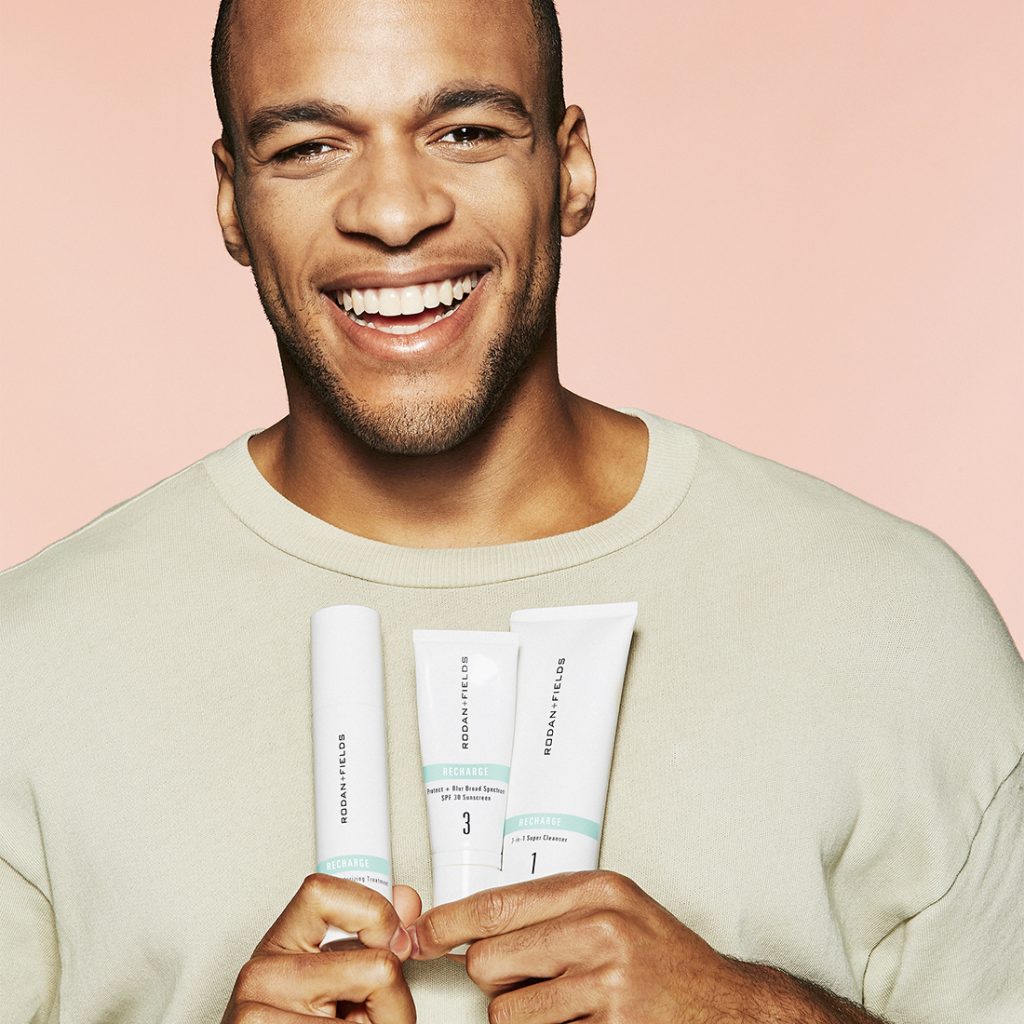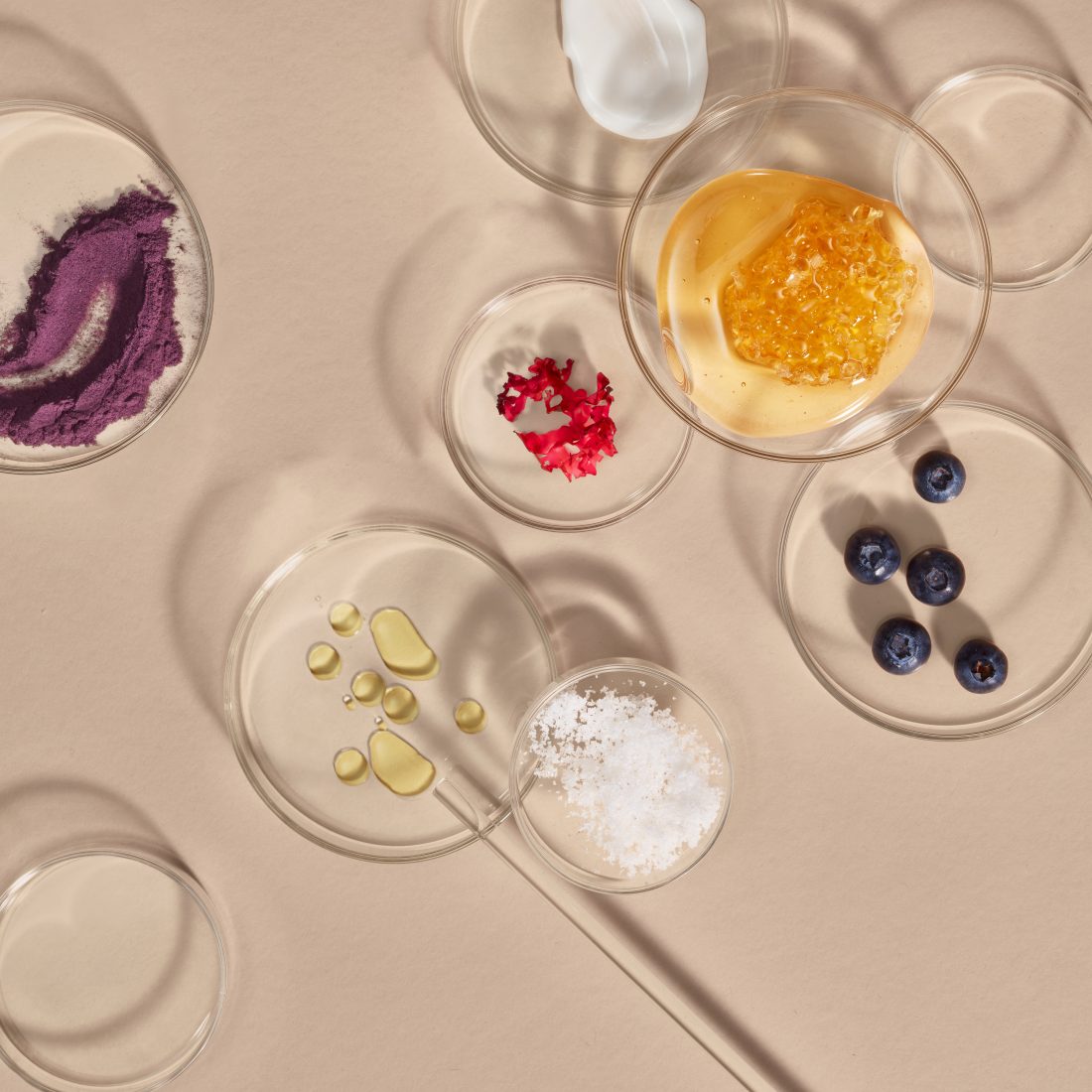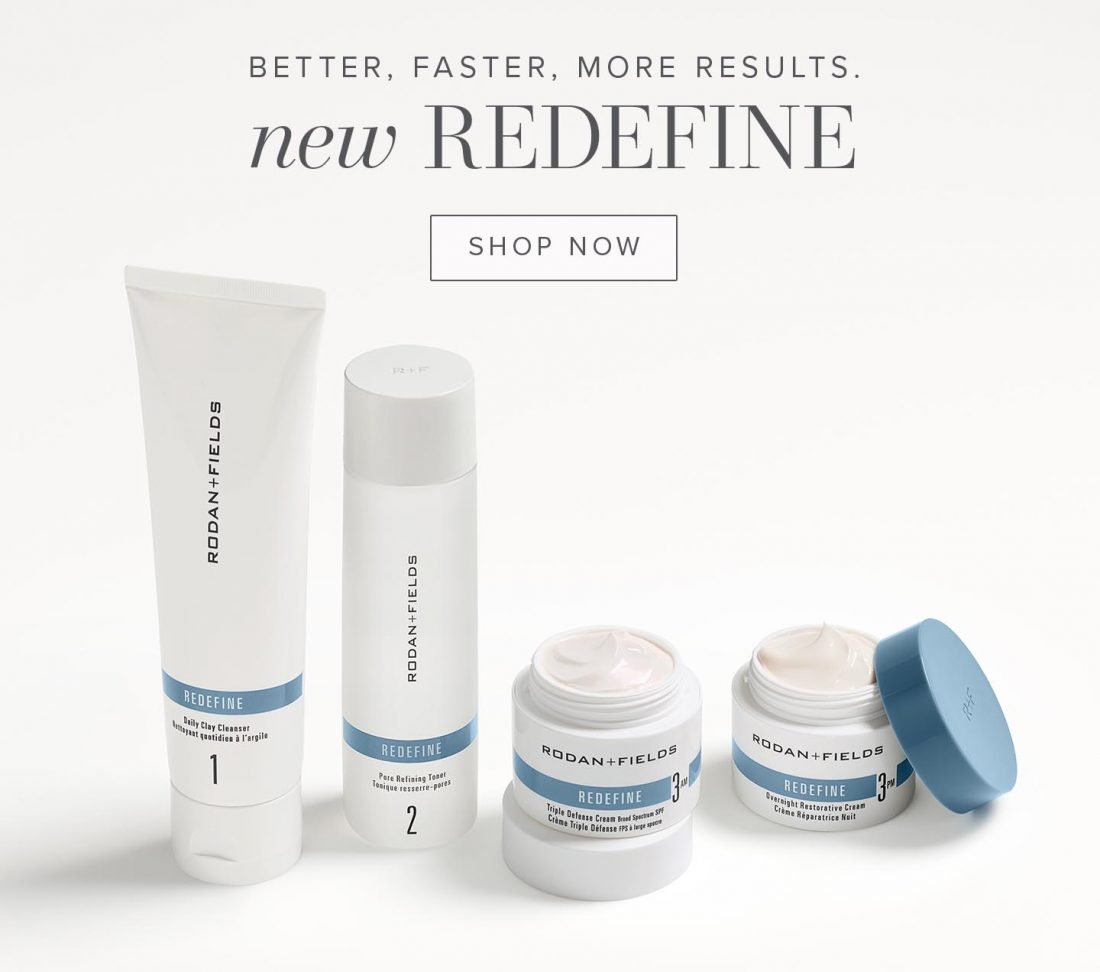Even the most casual skincare dabbler has likely heard about antioxidants. And if you haven’t heard about them in skincare, you probably have heard about them with regard to nutrition. Think antioxidant-rich smoothies, salads and the like. But what exactly do they do when it comes to your skin? Why slather them on your face on a daily basis? Here, we’ll share an overview of what antioxidants are in skincare, why it’s a top ingredient for many formulations, and how they help with skin concerns and with skin protection. Should you look for products boasting antioxidant blends for your skincare routine? Read on and find out more.
What Are Antioxidants?
The basics: Antioxidants are naturally occurring vitamins and minerals. These include Vitamin A, C, E and green tea. Their role in skincare is that they protect your skin from free radicals.
What are Free Radicals?
Free radicals have a somewhat confusing name. They sound kind of like a personality type you’d find on a quiz online. What they are, is molecules in the environment that damage the skin. Free radicals do this by attaching themselves to your collagen and weakening your skin’s elasticity. Rude, right? Free radicals come from things like exposure to sunlight, chemicals, air pollutants, and cigarette smoke. Preventative skincare contains antioxidants to protect your skin from these things, which essentially speed up aging — or the look of aging.
How Antioxidants Are Used in Skincare
Typically, skincare formulations contain a few of the antioxidants on this list, namely Vitamins A, B, C and Flavonoids. Many of the vitamins go by aliases you may know them as. They are essential in protecting the skin from exposure to free radicals in the environment.
How do we know they work?
Rodan + Fields scientists at the Berkeley Innovation Center utilize a test, called the DPPH assay, to measure the ability of different ingredients to perform as antioxidants. The experiment works in a very simple way. A chemical called DPPH is purple in color when it contains free radicals, but when those free radicals are removed or “quenched” by adding an antioxidant, such as blueberry extract, then the solution turns yellow. “How purple” or “how yellow” can be quantified and is a measure of the strength of the antioxidant.
The picture below presents a 96-well plate where many different potential antioxidants have been evaluated in one experiment. The color changes in the wells illustrate how some ingredients are better antioxidants than others. This helps select the most powerful antioxidants to be added to skincare products.

Vitamin E for Moisturizing and Soothing Skin
This is the most antioxidant with the most press, that is, it’s the most regularly used one in skincare. Vitamin E is also referred to as tocopherol in ingredient lists. Vitamin E has moisturizing and soothing properties and is added to many skincare, makeup, and hair products. Using a heavy, oil-based Vitamin E-infused product could break you out if you’re acne-prone, but if you opt for a water-light, Vitamin E–spiked serum instead, it’s not likely to irritate your skin. Vitamin E is a benchmark for other antioxidants to prove that they work, as it’s the most abundant and potent free radical-scavenging antioxidant.
Vitamin C for Skin Brightness and Even Tone
There’s a reason vitamin C is a recommended remedy for a range of complexion concerns. A skincare heavyweight, the ingredient is a potent antioxidant that helps to address pigmentation and texture issues, even out your skin tone, brighten, and improve fine lines and wrinkles. In higher concentration, it provides brightening benefits, while in lower concentrations it acts as an antioxidant. Vitamin C also helps skin’s ability to heal while imparting anti-inflammatory properties. This makes it an excellent choice for addressing acne or rosacea. There are three types of vitamin C: Ascorbic Acid, Magnesium Ascorbyl Phosphate (MAP) and Ester-C.
Ascorbic Acid
Ascorbic Acid is the kind of Vitamin C that’s most commonly found in your skincare. Ascorbic acid is known for fast absorption and high potency when it is applied topically to your skin. It’s water-soluble. It fights bacterial infections while assisting with building collagen in the skin.
Magnesium Ascorbyl Phosphate
Magnesium Ascorbyl Phosphate is another water-soluble vitamin C derivative that is effective in lower concentrations. This form of vitamin C is considered stable and it increases the hydration levels of your skin. It’s also known for its calming effect on the skin. Magnesium in general has a calming effect — you may have taken magnesium supplements to help you sleep. Magnesium Ascorbyl Phosphate helps with sensitive skin and skin that produces excess oil.
Ester-C
This is the third type of vitamin C that’s pH-neutral. It’s a trademarked form of the vitamin infused with Calcium Ascorbate and is made using a water-based manufacturing process.
Good to know: When Vitamins C and E are combined, the antioxidant effects of both are boosted.
Vitamin A, also known as: Retinoids, Retinol, Retinal & Retinoic Acid
Vitamin A includes retinol, retinal, and provitamin A carotenoids. This vitamin serves multiple functions, from growth and development, to the maintenance of your immune system, to helping with your vision. There are a few different forms of Vitamin A. The first is retinoic acid, or Retin-A, which is a prescription drug. There’s retinol, which is 20 times less potent than retinoic acid and while less irritating than retinoic acid, sometimes people still react to it. Last, there’s retinyl, which is as effective as retinoic acid without the side effects. This makes it the most effective and well tolerated form of Vitamin A.
Vitamin B3, also known as Niacinamide
This one is also known as nicotinamide or niacinamide. It’s a water-soluble vitamin that help visibly minimize large pores, tighten pores and improve uneven skin tone. It also helps lessen the appearance of fine lines and wrinkles and diminishes dullness.
Flavonoids
Flavonoids are derived from plants and contain antioxidants in high concentrations. Skin care products formulated with flavonoids assist with maintaining skin’s overall quality and appearance. Berries like blueberries, raspberries, strawberries and blackberries contain flavonoids.
Antioxidants Assist with Preventative Skincare
Antioxidants not only protect your skin from the effects of free radicals, they can help reduce inflammation in your body—and more importantly, in your skin. Inflammatory damage in your skin can contribute to the formation of wrinkles, so antioxidants are an ingredient that can help with preventative skincare goals.
Recharge Step 2 Ultra Boost Moisturizing Treatment Weightless, fast-absorbing gel cream is a good choice for a light moisturizer with antioxidants. It defends against visible signs of stress to reveal a lasting, healthy-looking glow.

Those who want an antioxidant-spiked product geared toward acne-prone skin will love SPOTLESS Acne Clearing Treatment. It’s a lightweight, fast-absorbing acne treatment with Benzoyl Peroxide to treat teen and young adult acne. Antioxidants serve an anti-inflammatory role, helping lessen the visible inflammation caused by acne.
If you want a tint and sun protection with your skincare, Radiant Defense Protecting Liquid SPF30 is a great antioxidant-rich product that multitasks and provides anti-pollution defense. This lightweight tinted moisturizer defends against environmental aggressors, repairs skin’s moisture barrier and protects your skin from UV rays.
Dull & Tired SkinFine Lines & WrinklesRechargeUneven Skin ToneVitamin C





